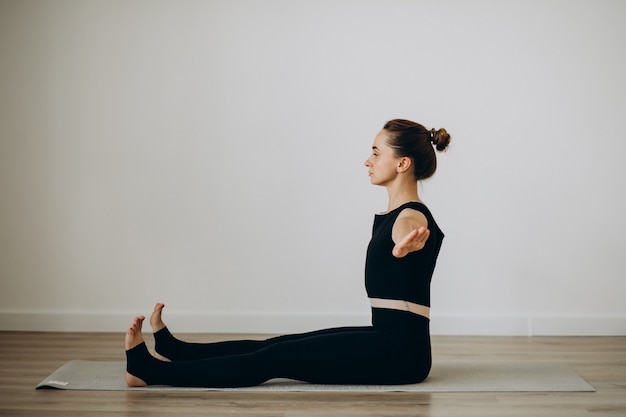
A yoga body isn’t just about flexibility; it’s also great for your memory, heart, and bones, says Anna Magee.
Yoga has become a huge part of British life. We’re now spending £790 million annually on classes and mats. While yoga seems to be branching out into new, quirky forms—like rage yoga or doing poses on paddleboards—science is backing up its real benefits.
Researchers from UCLA found that a three-month yoga and meditation course was more effective than memory exercises in reducing age-related brain changes. Another study showed it could help improve sleep for breast cancer survivors.
Lucy Edge, 53, a former advertising executive, turned to yoga during a deep depression instead of taking prescribed antidepressants. She took a six-month career break and traveled to India to learn yoga. Although she didn’t come back with the perfect yoga body, she felt happier and more content. Lucy has since written three books about yoga and founded Yoga Meds, which lists over 300 clinical trials demonstrating yoga’s benefits for various conditions.
If you’ve been relying on crossword puzzles for memory training, it might be time to also consider yoga. The UCLA study compared the effects of 12 weeks of memory exercises and yoga on adults over 55. Those who did yoga had better improvements in memory, less depression and anxiety, and better stress resilience. Dr. Clare Walton from the Alzheimer’s Society emphasized the need for more research on yoga’s potential benefits for brain and heart health.
You don’t need to do hours of headstands to benefit. In the study, participants did one hour of Kundalini yoga weekly, which involves breathing techniques, meditation, and chanting mantras. They also did 20 minutes daily of Kirtan Kriya, a meditation practice involving chanting, hand movements, and visualizing light.
Yoga might also be a gentle way to help your heart. A 2014 review published in the European Journal of Preventative Cardiology showed that yoga could lower heart disease risk as much as conventional exercises like brisk walking. Stress contributes significantly to heart disease by raising blood pressure and heart rate, and yoga can help reduce that stress.
Dr. Mike Knapton from the British Heart Foundation noted yoga’s benefits for emotional health are well established. It helps with anxiety, stress, and depression, conditions often affecting people with heart disease.
For beginners, Charlotte Watts, author of “The De-Stress Effect,” has a series of gentle yoga poses that reduce stress. Anna Ashby, a senior teacher at Triyoga Studios, suggests Restorative yoga for stress relief. Postures in this practice are held for up to 12 minutes with bolsters and cushions for support, giving your nervous system a break.
Sarah Shone, a musculoskeletal physiotherapist and yoga teacher, integrated yoga into a rehabilitation program for back pain. An astounding 87% of participants reported pain reduction. NICE guidelines recommend yoga for lower back pain, and Shone wants to train more physiotherapists to use yoga clinically.
Yoga also helps with incontinence by targeting pelvic floor muscles and improving bone density due to its weight-bearing nature. For beginners, Shone advises informing your instructor of any health issues and trying gentle styles like Hatha or Iyengar before moving to more challenging classes.
Choosing the right yoga mat is crucial, considering where it will be used, its weight, and your height. Investing in a thicker mat can protect your joints during practice.
Healthista recommends the eye-catching Elephant Cork Yoga mat from Valka Yoga, priced at £69.95. Made from eco-friendly materials and designed for comfort, it’s also antimicrobial and odor-resistant. Valka Yoga commits to planting a tree for every order, adding an eco-friendly bonus to your yoga practice.
In addition, Valka’s yoga block, priced at £19.95, complements your practice by adding stability and extending your reach in certain poses.
Whether you’re stiff or flexible, yoga can benefit everyone:
– Yin or Restorative yoga classes are great for relaxation.
– Vinyasa Flow is energetic and links postures to breath, suitable for beginners with adaptations.
– Iyengar yoga focuses on precision and alignment, using props to help beginners.
– Anusara yoga combines alignment with flowing movements and upbeat music.
– Yoga Therapy is tailored for healing injuries or illnesses with trained teachers.
Lucy Edge’s book “Down Dog Billionaire” is available on Amazon.




